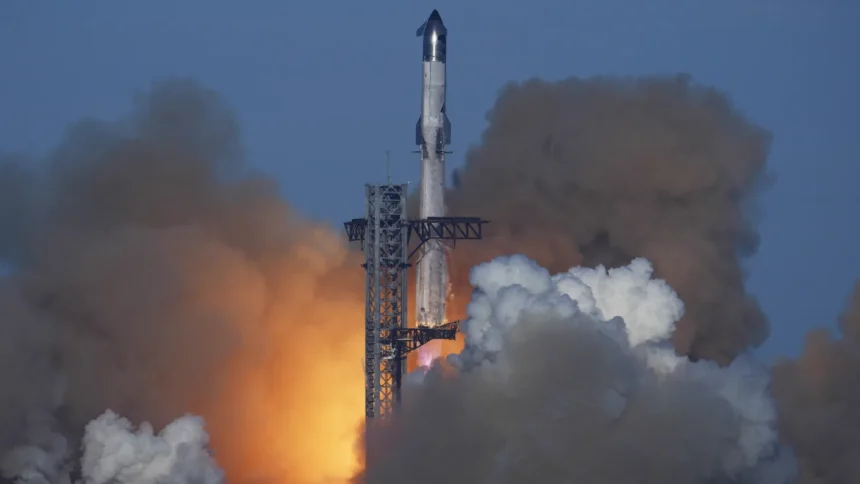The Federal Aviation Administration (FAA) has grounded SpaceX’s Starship rocket following a midflight explosion during a test flight. The incident caused debris to rain down on areas, including Turks and Caicos, prompting the FAA to divert flights and activate a debris response area. Both SpaceX and the FAA are investigating the failure, with future launches contingent on corrective measures.
Midflight Explosion and Immediate Fallout
SpaceX’s Starship rocket suffered a catastrophic failure minutes after its Thursday launch, leading to a midflight explosion. The FAA responded swiftly, diverting and delaying dozens of commercial flights operated by major airlines such as American Airlines, JetBlue, and Delta.
The FAA stated that while there were “no reports of public injury,” it received “reports of public property damage on Turks and Caicos.” Videos shared on social media captured the dramatic moment the rocket detonated in space, scattering debris.
The FAA’s Debris Response Area
In response to the explosion, the FAA activated a “Debris Response Area,” designed to warn aircraft of debris falling outside the predetermined hazard zones. Before every launch, the FAA designates “Aircraft Hazard Areas” to ensure pilot safety in case of a mishap.
Contrary to SpaceX’s initial claim that all debris fell “into the Atlantic Ocean within the predefined hazard areas,” the FAA’s action suggests debris may have extended beyond these zones. The FAA noted its findings are “preliminary and subject to change.”
Investigation and Grounding of Starship
The FAA has grounded Starship until SpaceX completes its investigation into the failure and implements required corrective actions. SpaceX acknowledged in a statement that the rocket likely broke apart due to a fire in the vehicle.
“Any surviving pieces of debris would have fallen into the designated hazard area,” SpaceX said, although this language was later removed from its updated statement.
Implications for Future Launches
This incident is a significant setback for SpaceX’s Starship program, a rocket critical to Elon Musk’s vision of interplanetary travel. The grounding follows a previous test flight failure and raises questions about the safety and reliability of the world’s most powerful rocket.
While the FAA has not specified when Starship can resume flights, its decision underscores the importance of adhering to stringent safety protocols. The investigation’s findings will likely shape the regulatory framework for future launches.
The grounding of SpaceX’s Starship by the FAA following a midflight explosion highlights the challenges of pioneering space technology. As investigations continue, the focus remains on ensuring safety for both the public and commercial aviation. This incident serves as a reminder of the risks inherent in advancing space exploration, even for industry leaders like SpaceX.





